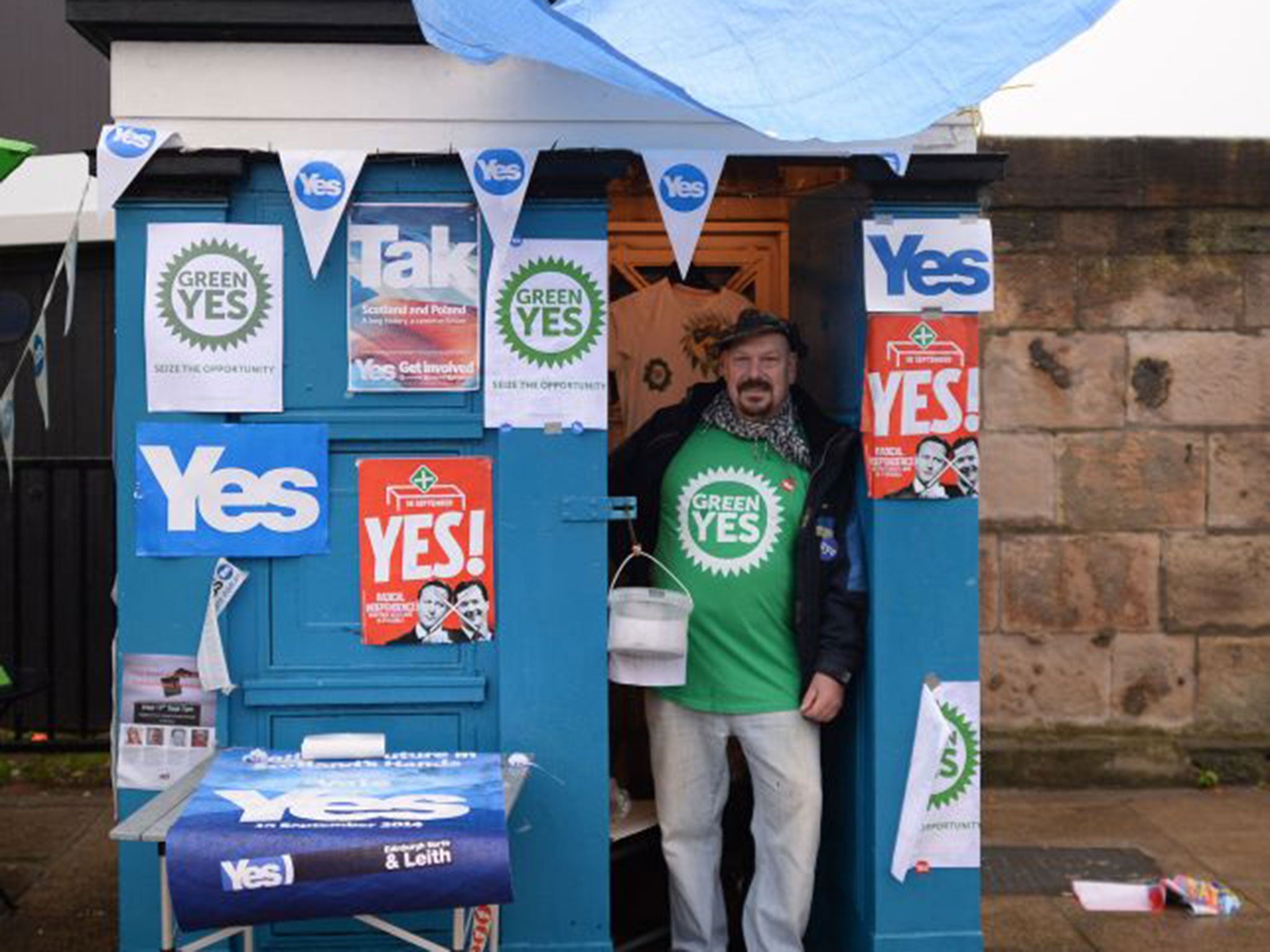Scottish independence: Born, bred and migrated - there are many shades of Scottishness, but how will they vote?
Some are born Scottish, some are bred Scottish, and some have Scottishness thrust upon them. So who’s got the vote – and who will be shouting from the sidelines?

Your support helps us to tell the story
From reproductive rights to climate change to Big Tech, The Independent is on the ground when the story is developing. Whether it's investigating the financials of Elon Musk's pro-Trump PAC or producing our latest documentary, 'The A Word', which shines a light on the American women fighting for reproductive rights, we know how important it is to parse out the facts from the messaging.
At such a critical moment in US history, we need reporters on the ground. Your donation allows us to keep sending journalists to speak to both sides of the story.
The Independent is trusted by Americans across the entire political spectrum. And unlike many other quality news outlets, we choose not to lock Americans out of our reporting and analysis with paywalls. We believe quality journalism should be available to everyone, paid for by those who can afford it.
Your support makes all the difference.The future of Scotland will be decided by the Scots. Or will it? Under the terms of the Edinburgh agreement, which set out the rules of this week’s referendum, eligibility to take part in this week’s vote is broadly similar to those governing normal Scottish parliamentary or council elections.
With the notable addition of 16- and 17-year-old voters, qualifying British, EU and Commonwealth citizens resident in Scotland as well as members of the armed forces serving overseas are all entitled to take part alongside born and bred Scots.
The 2011 Census put the Scottish population at a record 5.3 million – surpassing its previous 1974 peak. From that an unprecedented 4.3 million people have registered to vote. Much of the past decade’s population growth has been down to the arrival of so-called New Scots exceeding the number of nationals leaving the country. Recent years have seen arrivals switch from traditional countries such as India and Pakistan to include workers from Eastern Europe, particularly Poland.
It is now estimated that 7 per cent of the Scottish population was born outside the UK, less than half the figure for the rest of Britain as a whole. Yet by far the largest non-Scottish ethnic group residing across the Tweed is the 422,000 English-born individuals accounting for nearly 9 per cent of the Scots population.
They outnumber all other nationalities combined, including the 35,000 expatriate Northern Irish and 16,000 Welsh. Yet this is just half the figure of 750,000 Scots, more than the combined population of Edinburgh and Glasgow, who have crossed the border in the opposite direction and, unlike their fellow Britons living in Scotland, are excluded from the ballot.
The English will form a formidable constituency with up to seven out of 10 English expected to vote No on Thursday. But if the choice comes down to one of national identity, they could find themselves severely outnumbered. Asking the question for the first time, the 2011 Census found six out of 10 Scots said they were Scots alone while less than one in five described themselves as Scots and British. Just 8.4 per cent considered themselves purely British. Meanwhile, when Scotland organised its giant Homecoming celebrations in 2009 it was estimated that 40 million people around the world claimed to have Scottish ancestry – none of whom will have a say this week.
Join our commenting forum
Join thought-provoking conversations, follow other Independent readers and see their replies
Comments